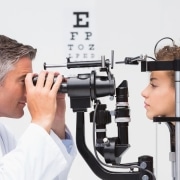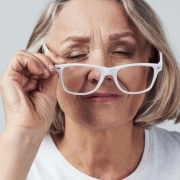What Is Ocular Albinism?
Ocular albinism is a genetic condition that affects the color of the eyes. Occurring mainly in males, it essentially reduces the pigmentation of the iris and retina, which in turn affects vision. We’ll look at the mechanisms and prognosis for this disorder and why an eye doctor in Wilmington, NC may be able to help.
Symptoms of Ocular Albinism
The major characteristic of ocular albinism is a loss of both visual depth and sharpness. People may also experience rapid, involuntary eye movements, increased sensitivity to light, or two eyes looking in opposite directions. The vision loss is unfortunately permanent, though it’s worth noting that it typically does not worsen as people age.
Does Ocular Albinism Affect Other Parts of the Body?
No. In general, the condition only affects the color and functionality of the eyes. There may be some degree of lightening of the skin (compared to immediate family members), but the variances are usually subtle. In rare cases, ocular albinism may be associated with hearing loss though.
How Is Ocular Albinism Treated?
Type 1, sometimes called Nettleship-Falls, is typically treated with filtered glasses or sunglasses to control for light sensitivity. In some cases, surgery may be needed to help align the eyes and restore the body’s control over their direction. This is the most common type of this condition and other forms may require additional treatment or services.
Ocular Albinism in Wilmington
Ocular albinism in Wilmington, NC may not have an official cure per se, but there are options available to help manage the symptoms. The Low Vision Centers of North Carolina has an innate understanding of the condition and how it affects individuals. If you have questions or concerns about the disorder, contact the office today to make the first move.


